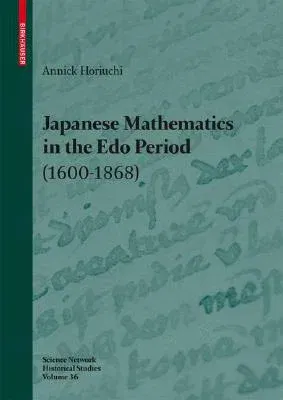Annick Horiuchi
(Author)Japanese Mathematics in the EDO Period (1600-1868): A Study of the Works of Seki Takakazu (?-1708) and Takebe Katahiro (1664-1739)Hardcover, 6 September 2010

Qty
1
Turbo
Ships in 2 - 3 days
In Stock
Free Delivery
Cash on Delivery
15 Days
Free Returns
Secure Checkout

Part of Series
Science Networks. Historical Studies
Part of Series
Science Networks: Historical Studies
Print Length
350 pages
Language
English
Publisher
Birkhauser
Date Published
6 Sep 2010
ISBN-10
3764387440
ISBN-13
9783764387440
Description
Product Details
Author:
Book Format:
Hardcover
Country of Origin:
NL
Date Published:
6 September 2010
Dimensions:
23.11 x
15.49 x
2.54 cm
Genre:
Asian - Japanese
ISBN-10:
3764387440
ISBN-13:
9783764387440
Language:
English
Location:
Basel
Pages:
350
Publisher:
Weight:
703.07 gm